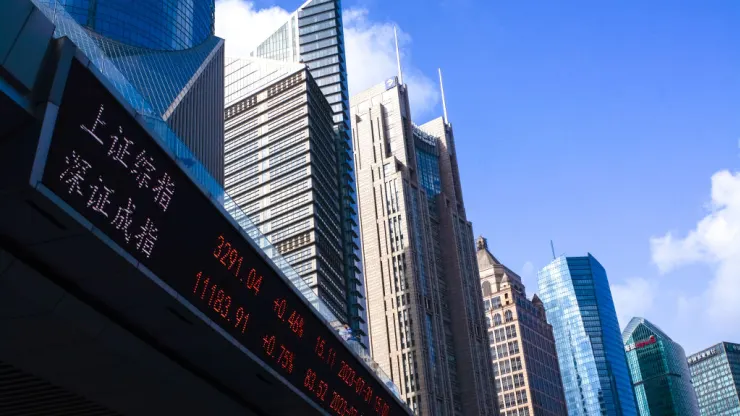Asia-Pacific markets fell on the last trading day of 2023, with China stocks being the sole exception as the country’s tech companies continued their advance.
Chinese consumer electronics company Xiaomi on Thursday detailed plans to enter China’s oversaturated electric-vehicle market. Hong Kong shares of the company fell more than 4% by afternoon trading.
The company seeks to compete with auto giants Tesla and Porsche with a car model Xiaomi says it spent more than 10 billion yuan ($1.4 billion) to develop.
Hong Kong’s Hang Seng index dipped 0.20%, while China’s CSI 300 index closed 0.49% higher at 3,431.11.
China and Hong Kong indexes rallied more than 2% each in the previous session, but were still set to be the biggest percentage losers for the year among major Asia-Pacific markets.
China’s CSI 300 index is down 11.8% for the year, while the Hang Seng has plunged 14% in 2023.
Japan’s Nikkei 225, which ended down 0.22% at 33,464.17, wrapped up the year with gains of over 28%, making it Asia’s top-performing market.
The broader Topix closed 0.19% higher at 2,366.39, having surged over 25% in 2023.
South Korea markets were shut on Friday, with the Kospi up 18.7% for the year and the Kosdaq clocking 27.5% in gains.
Australia’s S&P/ASX 200 index closed 0.31% lower at 7,590.80, cooling off from two straight sessions of gains, but was still up 7.84% for the year.
Overnight, the S&P 500 finished marginally higher Thursday, closing in on a new all-time high in the penultimate trading day of what’s been a strong year for stocks.
The broad market index added 0.04% to finish at 4,783.35, putting it within striking distance of its highest closing level of at 4,796.56 set in January 2022.
The Dow Jones Industrial Average rose 0.14% to notch a fresh record closing high. The Nasdaq Composite inched down 0.03%.

